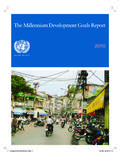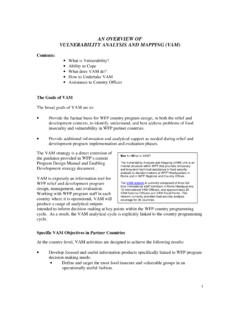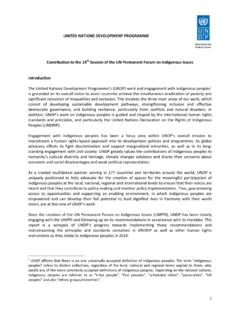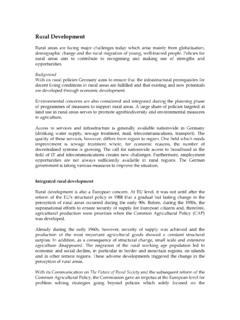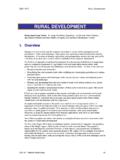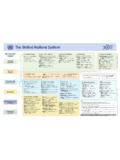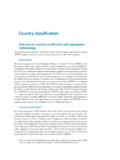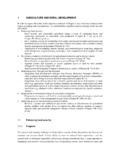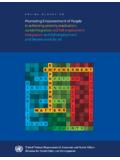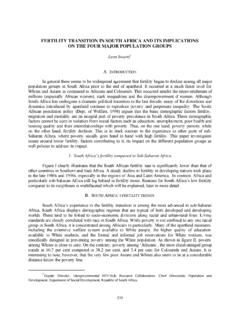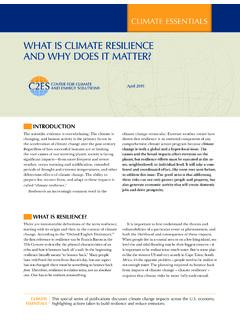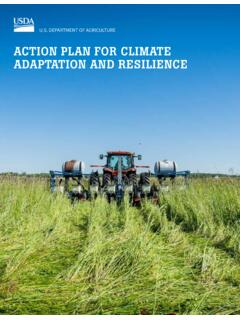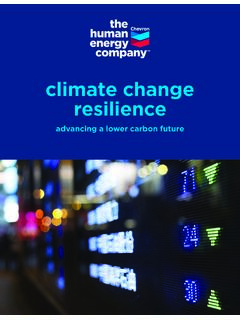Transcription of Chapter I Climate change resilience for sustainable ...
1 Chapter IClimate change resilience for sustainable developmentThe international consensus on sustainable development In 2015, world leaders took significant steps towards forging sustainable development pathways holding out the promise of eradicating poverty, reversing environmental degradation and achieving equitable and inclusive societies. From 25 to 27 September 2015, Heads of State and Government and High Representatives gathered at United Nations Headquarters in New York to adopt the 2030 Agenda for sustainable Development,1 which 1 General Assembly resolution 70/1, entitled Transforming our world: the 2030 Agenda for Sustain-able Development.
2 In 2015, States Members of the United Nations took significant steps towards building sustainable development pathwaysKey messages Climate change is increasing the frequency and intensity of the extreme weather and Climate events that are affecting all countries. However, because of their geographical location, reliance on Climate -sensitive natural resources and development gaps in general, developing countries, and low-income countries in particular, are at the greatest risk of Climate hazards. Left unattended, Climate hazards are likely to increase poverty, worsen inequalities, exacerbate food insecurity and cause health problems, among other hardships, which may reverse years of development progress in some countries.
3 Climate hazards also have differential impacts on people and communities within countries. These impacts are largely determined by deep-rooted socioeconomic inequalities. As a result, they tend to be particularly detri-mental to the most disadvantaged groups of society, which are hence disproportionately exposed and vulnera-ble to Climate hazards. The universal consensus attested by the adoption of the 2030 Agenda for sustainable Development provides a unique opportunity to build Climate change resilience for sustainable development by addressing the structu-ral inequalities that perpetuate poverty, marginalization and social exclusion and thus increase vulnerability to Climate hazards.
4 To be successful, disaster risk reduction and disaster management, social protection and adaptation strategies must all be part of a broader development framework which incrementally leads the way to the empowerment of today s disadvantaged groups, by improving their asset positions and access to input and product markets; by extending their access to quality basic services; and by changing the norms that foster their social and political Economic and Social Survey 2016will drive global efforts towards achieving sustainable development until 2030. Previous efforts gave impetus to the adoption of this Agenda.
5 On 16 July 2015, the Third International Conference on Financing for Development, held in Addis Ababa from 13 to 16 July 2015, adopted the Addis Ababa Action Agenda of the Conference,2 which puts forward a global framework for mobilizing resources and facilitating policy implementation for sustainable development. On 3 June 2015, the General Assembly endorsed the Sendai Framework for Disaster Risk Reduction, 2015-2030,3 which had been adopted by the Third World Conference on Disaster Risk Reduction, held in Sendai City, Japan, from 14 to 18 March 2015. The Sendai Framework recognizes that it is the primary responsibility of Governments to reduce disaster risk and loss of lives, and preserve livelihoods, which will be critical to averting development reversals in the future.
6 The 2030 Agenda for sustainable Development recognized that Climate change , whose adverse impacts undermine the ability of all countries to achieve sustainable development, constitutes one of the greatest challenges of our time and, in that regard, acknowledged the sessions of the Conference of the Parties to the United Nations Framework Convention on Climate change as the primary forum for negotiating the global response to that challenge. On 12 December 2015, the Conference of the Parties to the Convention at its twenty-first session adopted the Paris Agreement in which the parties to the Agreement announced quantitative commitments to reducing their greenhouse gas emissions, the major driver of Climate change , and to supporting adaptation historic agreements are part of a global consensus on the need to address the inextricable links between the human development and environmental agendas.
7 They signal acknowledgement, on the part of developed and developing countries, of the universal need for an integrated and coherent approach to tackling global development challenges, including consistent adaptation to Climate change . Recognition of the urgency of moving towards sustainable development pathways comes at times when warming of the Climate is unequivocal (Intergovernmental Panel on Climate change , 2014e, p. 2, SPM ) and is increasing the likelihood of severe, pervasive and irreversible impacts for people and ecosystems (ibid., p. 8, SPM 2). World Economic and Social Survey 2016: Climate change resilience - An Opportunity for Reducing Inequalities contributes to the identification of some of the challenges of implementation of the 2030 Agenda for sustainable Development.
8 The evidence points to the great economic, human and environmental losses brought about by Climate hazards which, if left unattended, are likely to continue. The Survey addresses the challenges of strengthening the capacity of countries and people to avoid development reversals from those hazards. Recent data suggest that the world has already warmed Celsius from pre-industrial levels and will continue to experience warming even if greenhouse gas emissions were immediately brought to a complete halt (Intergovernmental Panel on Climate change , 2013).
9 The consequences of the warming of the planet will continue to challenge the capacity of countries to prevent devastating impacts on people and Survey argues that building Climate resilience presents a unique opportunity to reduce inequalities. The persisting inequalities in multiple dimensions have led to recognition that Climate hazards have a differential impact on people and communities. It 2 General Assembly resolution 69/313, General Assembly resolution 69/283, annex See FCCC/CP/2015/10 , decision 1 is global consensus on the need to address the inextricable links between the human development and environmental agendasBuilding Climate resilience presents a unique opportunity to reduce inequalities through far-reaching transformative policies supported by effective global partnerships3 Chapter I.
10 Climate change resilience for sustainable developmenthas also been recognized that the association between Climate hazards and inequalities has not been sufficiently In response, the Survey has chosen to tackle the issue of Climate change resilience , with a focus on the population groups and communities that are disproportionately vulnerable. It argues that, in the absence of well-assessed, far-reaching transformative policies at the national level, supported by effective global partnerships, building Climate resilience will remain elusive and poverty and inequalities will likely be exacerbated. This would pose a fundamental challenge to the implementation of the 2030 Agenda for sustainable Climate resilience forward in implementing the 2030 Agenda for sustainable Development The 17 sustainable Development Goals and 169 targets set out in the 2030 Agenda explicitly elaborate on the interlinkages across the economic, social and environmental dimensions of development and the opportunities to build positive synergies among them.
